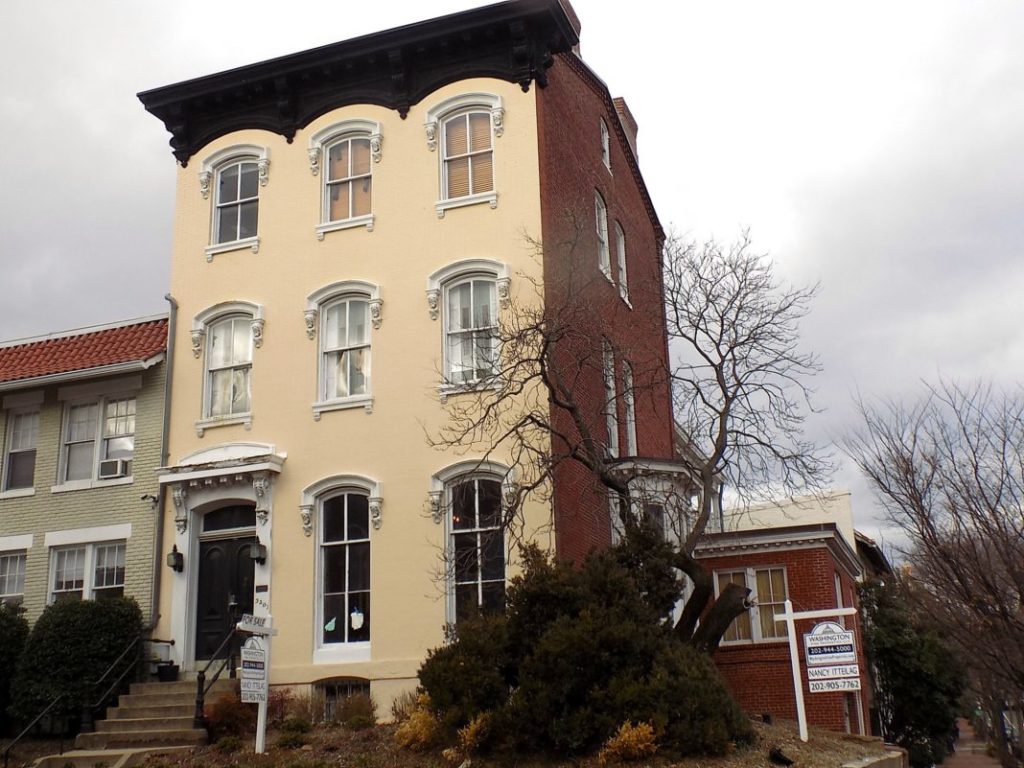Judge Rules Against Delta Phi Epsilon, Terrence Boyle
By • October 11, 2022 2 2536

The mess that is the Delta Phi Epsilon frat house scandal got a partial resolution last week, when Superior Court Judge Shana Frost Matini ruled against Terrence J. Boyle’s use of Delta Phi Epsilon funds and selling of the frat house at 34th & Prospect Streets without member authorization.
On Oct. 5, the Office of Attorney General announced that “the Superior Court granted the District partial summary judgment in its litigation against Delta Phi Epsilon, Inc. (Fraternity); Delta Phi Epsilon Foundation (Foundation); and Terrence Boyle.
“The Court ruled that Mr. Boyle, a long-standing officer and director of the organizations, improperly obtained a private benefit from the Foundation as a result of a 1990 joint purchase of a Georgetown residential property that Mr. Boyle has used continuously (and solely) as his private home. To facilitate Boyle’s purchase of his home, the Foundation contributed $150,000 toward the down payment for the home (Boyle contributed only $50,000) and lent its name and creditworthiness to an application for a mortgage to finance a portion of the purchase price. The Foundation never used the property for any nonprofit purpose.
“The Court also ruled that the Fraternity improperly donated its primary nonprofit asset—a separate piece of Georgetown real estate known as the Alpha House—to the Foundation without first obtaining the Fraternity members’ approval as required by the Nonprofit Corporation Act. The Court further held that Mr. Boyle, who played a central role in both real estate transactions, breached his fiduciary obligations to the Foundation as a result of the Georgetown home purchase, and also breached his fiduciary obligations to the Fraternity as a result of the Alpha House transaction.
“The Court has not yet ruled on the potential remedies for these violations, and the District’s remaining claims against the Fraternity and Foundation, including failures in the entities’ governance in violation of the NCA, will be adjudicated at trial.”
A copy of the order is available here.
This matter was handled by Assistant Attorney General Tabitha Bartholomew, with the assistance of Senior Trial Counsel Adam Teitelbaum and Investigators Renardra Brown and Willie Haynes, under the supervision Assistant Deputy Attorney General Will Stephens of the Public Integrity Section of the Public Advocacy Division of OAG.


Artcle on Fraternity
Judge Rules Against Delta Phi Epsilon, Terrence Boyle
To the Editor:
An Oct 11 article by R. Delaney headlined “Judge Rules Against Delta Phi Epsilon, Terrence Boyle,” mentioned me by name seven times and stated the Court found that I “improperly obtained a private benefit [from DPE]…as a result of a 1990 joint purchase of…property used continuously (and solely) as [my] private home.”
Your reporter. before publishing it, never even tried to reach me, or my attorney, for comment, despite the article’s smearing me.
By reading of the case file, he would have known that the court issued the summary judgment on September 21 without having seen the 41 exhibits that defendants had submitted opposing the District’s motion, all thanks to a weeks-long, only-on-the-morning-of Oct 6-corrected, glitch in the system by which exhibits filed with the Court are entered. The filing system is executed not by parties, but by an independent entity and it failed to correct the filing problem before the Court’s due dates.
The Court, in short, could only rely on the District’s version of happenings; and, at the time the glitch was discovered, my attorney was hospitalized and unable to do anything to address the problem before the Court went ahead without the defendants’ exhibits.
It’s all akin to scoring a game with only one side able to play.
But if your reporter had only exhibited the simple courtesy of trying to reach either me or one of my attorneys, before publishing, his article might have been written differently, and your readers could have benefited from a more balanced account of events.
For one thing, your reporter surely would not have written in the article “To facilitate Boyle’s purchase of his home, the Foundation contributed $150,000 toward the down payment for the home (Boyle contributed only $50,000)” when the truth is that, yes, the Foundation did contribute $150,000 but I contributed $195,000 ($145,000 of which being from a mortgage loan that only I had to – and did – re-pay)
Sincerely,
Terrence J. Boyle